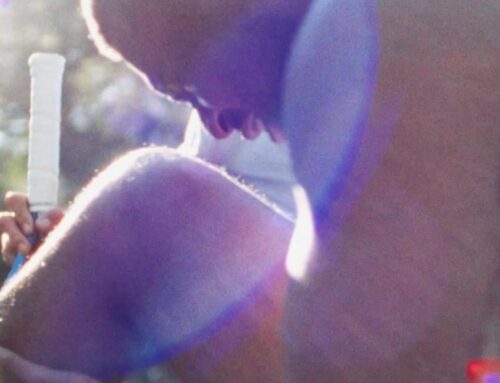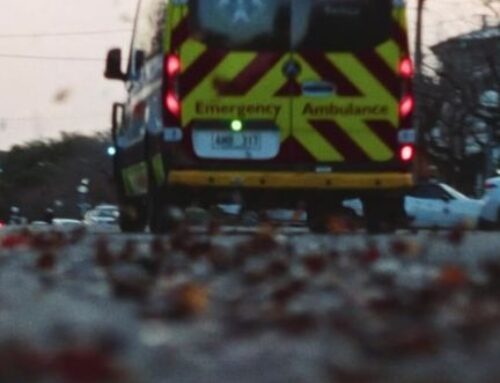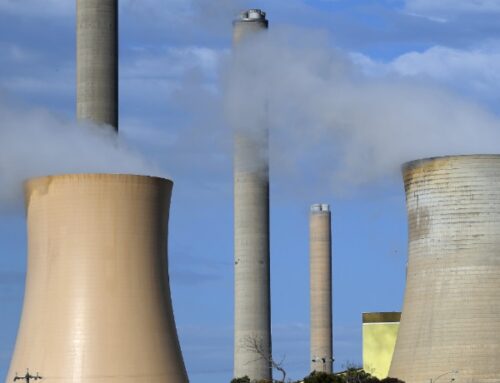On May 10, 1972, three gay men were brutally attacked and thrown into Adelaide’s River Torrens/Karrawirra Parri.
There were claims — never proven — that the attacks were committed by police officers; members of the so-called vice squad.
Homosexuality was illegal at the time and attacks on gay men were common around the banks of the Torrens, which was an established gay beat regularly patrolled by police.
“It was called ‘teaching the fairies how to swim’,” explains playwright Alana Valentine.
She’s the co-librettist of a new operatic work based on the events of May 10, which would become a watershed moment in Australian history.
Among the men thrown into the river that night was George Ian Ogilvie Duncan, a lecturer in law at the University of Adelaide.
Duncan had only been in Adelaide for six weeks, having relocated from Bristol in the UK, and couldn’t swim.
When the attackers realised, one reportedly jumped in to save him, but it was too late.
Duncan drowned — and the attackers fled.
His story is the subject of Opera Australia’s latest production, Watershed: The Death of Dr Duncan, opening at Sydney Opera House this weekend. It was commissioned for the 2022 Adelaide Festival to mark the 50th anniversary of Duncan’s murder, which has never been solved.
“It seemed to me wholly right that we should try to make space in the opera canon for a work that treats the murder of a gay man with some sort of reverence and commemorative solemnity,” Valentine says.
“This is a very extreme story. There’s extreme violence in it, there’s passion, there’s great sadness, and great hope because it did engender such incredible change.”
Allegations of a cover-up
Duncan’s death was met with public outrage and catalysed the decriminalisation of homosexuality in South Australia — making it the first state or territory in Australia to do so.
Acclaimed author and co-librettist of Watershed, Christos Tsiolkas, remembers first hearing about Duncan’s murder in the summer of 1985-86, just after he moved to Adelaide with his partner Wayne.
Homosexuality had been legal in South Australia for a decade by then, but attacks on queer people were still commonplace.
“I remember going to the Colonel Light Hotel, which was one of the queer pubs in the city, and being told, ‘Be careful if you go down to the river at night,’ because it was known that ‘poofters got bashed’ there,” Tsiolkas recalls.
“It was expressed to us as succinctly and as powerfully and as frighteningly as that.”
Following Duncan’s murder, police launched a major investigation, enlisting detectives from Scotland Yard, London’s metropolitan police unit, but it was suspended due to a lack of witness testimony.
In 1985, former vice squad officer Mick O’Shea detailed allegations of a cover-up to the Adelaide Advertiser, naming three squad members as the perpetrators: Francis John Cawley, Michael Kenneth Clayton and Brian Edwin Hudson.
The trio were charged, and Cawley and Clayton stood trial in 1988 but were acquitted.
To this day, no-one has been convicted for Duncan’s murder.
It’s a source of frustration for many in Adelaide’s queer community — a sentiment shared by Tsiolkas.
“The cops went out queer bashing. Everyone knows it, and the murderers are walking free,” he says.
“I’m not an expert on the investigation … but I believe that, and I know that.”
A watershed moment for LGBTIQ+ rights
Despite the lack of a conviction, Duncan’s murder had a lasting impact on queer rights in Australia.
A year after his death and the introduction of a bill to decriminalise homosexual acts in the South Australian parliament, the Australian federal parliament passed a motion in favour of decriminalisation, and the Australian Medical Association moved to declassify homosexuality as an illness or disorder.
Other states and territories would follow South Australia’s lead over the next 20 years, except for Tasmania, which retained discriminatory laws until the federal government forced their repeal in 1997.
The historical legacy of Duncan’s death was front of mind for Tsiolkas and Valentine when imagining his story for the stage.
“We felt the responsibility of telling this story and we were proud of that responsibility. [But] we were also careful about it and conscious about it,” Tsiolkas says.
“History forms us … It’s an important thing to remember that these rights that we now assume as part of the air we breathe came from the physical and mental labour, struggle, action [and] sadness of our elders.”
Opera Australia’s production of Watershed opens in Sydney a week after the NSW Premier Chris Minns delivered an apology to the queer community for the historical criminalisation of homosexual acts — making it the last state or territory to do so. This followed a special commission of inquiry into LGBTIQ hate crimes in NSW, which made 19 recommendations, including fresh inquests into the deaths of several men.
“For queer people, it has a specific and important resonance because it is about the lives we’ve led, especially for those of us who are older and have been on that cusp of change,” Tsiolkas says.
“We all should be acknowledging and celebrating this history, and remembering that these rights weren’t granted to us from on high — that we had to fight for them. We owe a responsibility to people like Dr Duncan that we honour those rights that we have now, and that we defend them.”
Queering the sacred
Although both are seasoned writers, neither Valentine nor Tsiolkas had written a libretto for an operatic work before.
They were first approached to co-write Watershed by the then-co-artistic director of Adelaide Festival Neil Armfield, who had wanted to assemble an all-queer creative team for the project, which also includes Joe Twist as composer.
“Neil [Armfield] was really clear that he wanted this to be a queer production because [it] is honouring queer history [and] honouring a man who was murdered because of his homosexuality,” Tsiolkas explains.
The work is operatic but it’s not quite an opera — it’s an oratorio.
The main distinction is that an oratorio is typically presented as a concert work, rather than a dramatic work with onstage action, as in an opera or a musical.
An oratorio also typically has a religious or spiritual focus. One of the most recognisable examples is Handel’s Messiah, which is based on the story of Jesus Christ.
It was a deliberate choice for the creative team, explains Valentine: “We really wanted to carve out the space for queer, gay and lesbian experience to be part of the spiritual and the sacred [tradition of oratorios], when they are so often excluded from that.”
As part of their research, Valentine and Tsiolkas worked closely with historical consultant Tim Reeves, who wrote The Death of Dr Duncan and is widely considered an authority on Duncan’s life.
One of the lesser-known facts about the characteristically private man is that he was religious.
“We don’t know a lot about Duncan … but we do know that he had faith. He was a man of the church. So it felt right that we would create a sacred form to lament his death, to celebrate his life,” Tsiolkas says.
“One of the clearest oppressions that I personally experienced as a queer kid growing up was the idea that God hated me; the notion that you were excluded from God’s love, because of what your body desired and what your body was.
“So there is something powerful in claiming the sacred for this story, saying that … you can reconcile the body and the soul and that can be sacred.”
The ‘lost boys’
Along with Reeves, Tsiolkas and Valentine consulted local queer elders about their recollections of Adelaide in the early 70s.
What came through was that the violence Duncan experienced was far from an isolated incident.
“One of the things we were struck by … was that there were a lot of gay men who were going missing,” Valentine says.
“So we were always wanting to look at why it was Duncan and his death that sparked the outrage because, as queer people know, these are rarely one-off instances.”
Because homosexuality was illegal, violence towards members of the queer community often went unreported, although Duncan was an exception.
“It’s because he was a middle-class man, he was an academic [and] he had status,” Tsiolkas says.
“It was a shock and an outrage that a man like this would die and be killed in such a way.”
Duncan was a Cambridge-educated academic. He had lectured in law at the University of Bristol for five years before taking up his position at the University of Adelaide.
“I think we offer a pretty damning opinion that justice is class-based,” Valentine says.
While the writers make a clear statement about class in the show, it’s not intended to detract from the tragedy of Duncan’s story: It’s an invitation for the audience to consider the many other persecuted queer people who never made headlines.
In the show, they are personified as the character of “the lost boy”, a ghostlike figure who narrates parts of the story.
“We [wanted] to remind the audience that there are other ghosts on this stage. There are the ghosts of the lost boys who represent those people who didn’t have Duncan’s status, who didn’t have the sympathy of the world,” Tsiolkas says.
“I hope we did those lost boys justice.”
Watershed is at Joan Sutherland Theatre, Sydney Opera House, from June 14—16.





